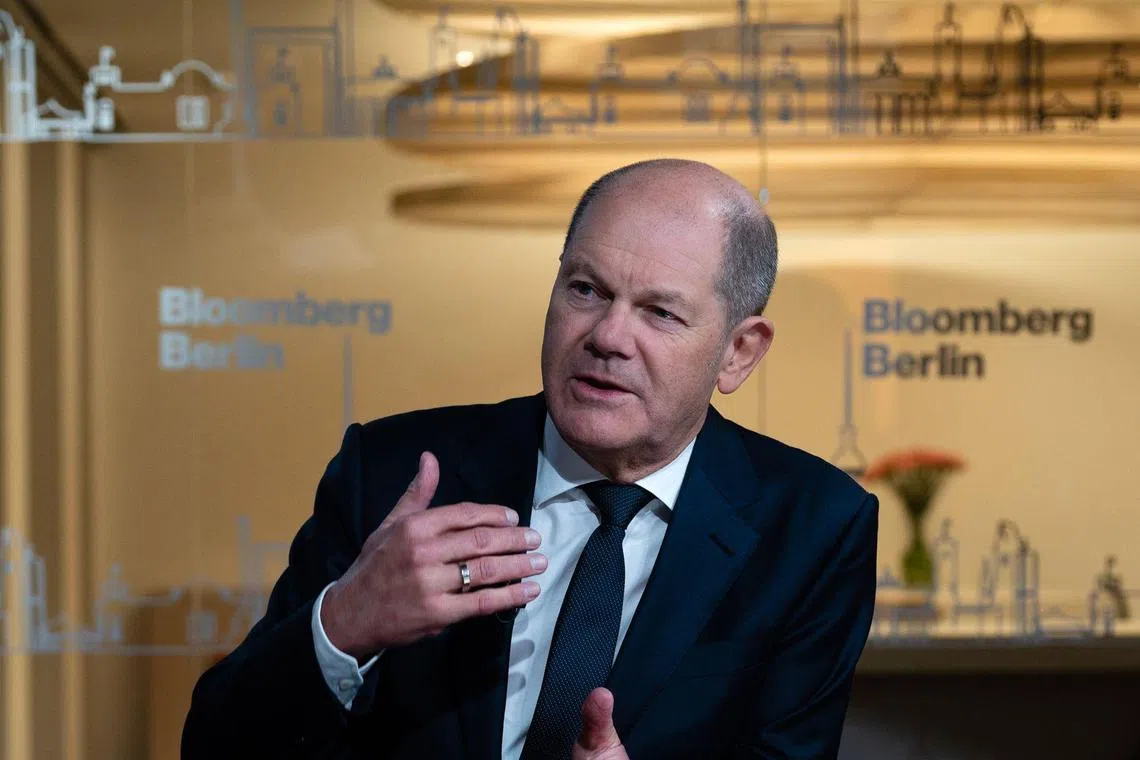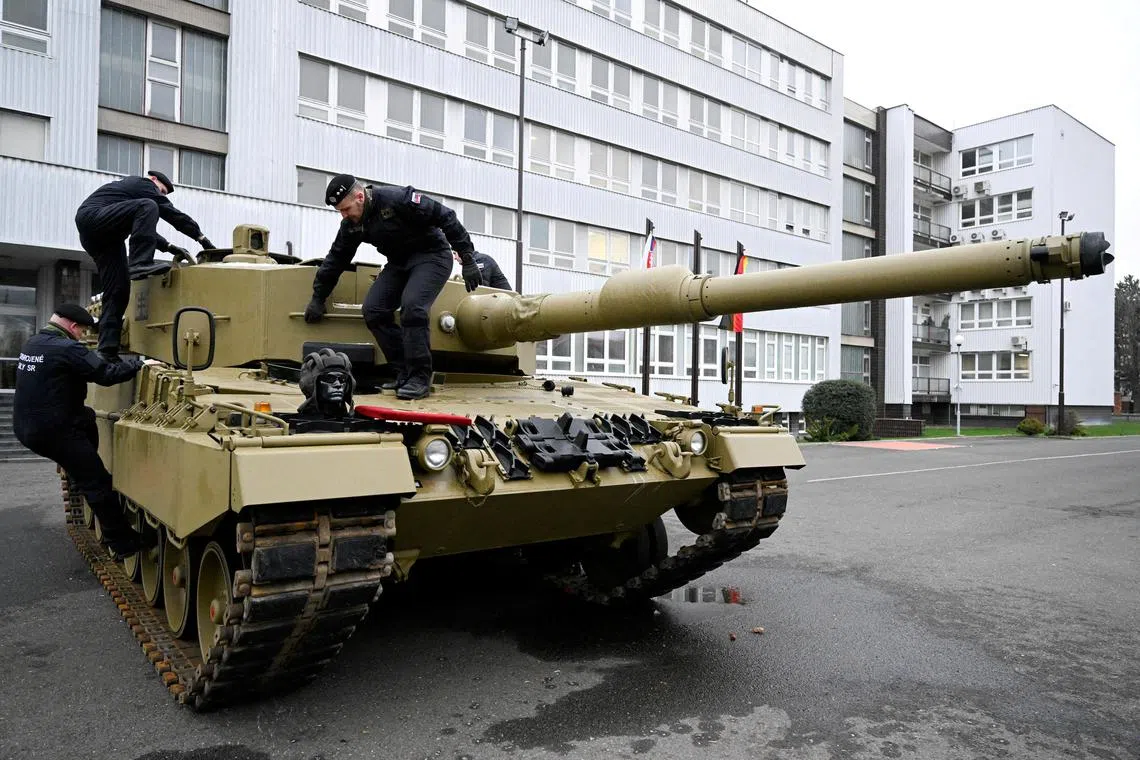Germany’s Scholz in talks with allies about sending tanks to Ukraine
Sign up now: Get ST's newsletters delivered to your inbox

Mr Scholz has been under pressure from allies to send German-made heavy Leopard battle tanks to Kyiv.
PHOTO: BLOOMBERG
BERLIN - German Chancellor Olaf Scholz said he is in talks with allies over potentially supplying heavy tanks to Ukraine, but cautioned that any announcements would have to come in lockstep with others.
“I am always thinking about the situation,” Mr Scholz said, in an interview on Tuesday with Bloomberg News editor-in-chief John Micklethwait.
“We always act together with our allies and friends – we never go alone.”
Mr Scholz has been under pressure from allies
The Chancellor won some respite earlier this month, with an agreement to send 40 Marder combat vehicles and a Patriot air-defence system to Ukraine
Yet, the calls for more powerful Leopard tanks have continued.
“We are supporting Ukraine for as long as necessary with all the means that we can use,” Mr Scholz said, adding that the aim is to “avoid that this is going to be a war between Russia and the North Atlantic Treaty Organisation”.
The UK on Saturday became the first country to confirm it will send its battle tanks to Ukraine,

Germany’s military delivers Leopard tanks to Slovakia, after Slovakia donated fighting vehicles to Ukraine, in December 2022.
PHOTO: REUTERS
The government is expected to make a decision on tanks ahead of a meeting of senior defence officials from allied nations on Friday at the US airbase in Ramstein, Germany.
Russia’s move
Mr Scholz emphasised that Russia must withdraw its troops from Ukraine in order for any negotiations to happen, and that Germany would support Kyiv for as long as necessary.
“I am very happy that the Ukrainian president is ready for peace,” Mr Scholz said. “Russia has to do something which they are as far as we see not ready to do and this is withdrawing troops – we are waiting for that.”
Since Russia invaded Ukraine last year, the German Chancellor abandoned Berlin’s postwar policy of not sending lethal weapons into combat zones and earmarked €100 billion (S$140 billion) to modernise the armed forces on top of an increase in annual defence spending that is set to reach Nato’s target of 2 per cent of GDP next year.
The German government is in position to unlock dozens of German-made Leopard tanks for Ukraine, which could significantly boost Kyiv’s capabilities.
Twelve other European countries have Leopards in their arsenals, but they need Berlin’s approval


